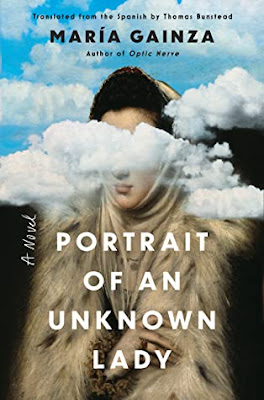The other evening I sit with a friend on his balcony having a glass of wine and sharing insights into our hearts and brains and those of our lovers and those whom we'd like to have as our lovers and those who will never be our lovers, and about what happens between flirtation and expectation and reality, and he said something to me about how quick we are (I mean, not us, but people in general) to back away, as soon as any perceived flaw becomes apparent, as soon as our exacting standards are snubbed by the actuality of the flawed human being before us, because they just aren't worth the effort.
How easy it is to say no (or sometimes nothing at all), how much easier than compassion, than to accept someone's authentic self and engage in the exercise of knowing them, really knowing them, even especially biblically.I think about how I could've said no to the man, a recent lover, whose behaviour I am now dissecting with my friend on his balcony. It's easy to say no, we have so many reasons to say no, I could've said no because of, well it doesn't matter the many reasons why, but the brave thing is to say yes, to be open to yes. I could've said no, but I said yes, but after some time he said no, I don't know why.
I don't tell my friend this, but I try to say yes as often as possible (unless it's to do with work), and for this I am proud of myself. Carpe diem and all that. The yes is almost always worth it. The yes is the good stuff, the stuff of deathbed reminiscences. Nothing is permanent, everything is temporary. Yes.
I come home late, a little drunk, but lighter, and smiling, and I fall into bed, too alive to be sleeping, I open The Collected Stories of Lydia Davis. I read something about something liminal as the character was trying and failing to fall asleep, while I am falling asleep, drifting between Davis's words, feeling the mostly natural chemicals coursing through my blood, feeling these words were written for me in this moment.
And the next thing I know it's the end of the story, and there's another one, right there on the next page, "He's trying to break it down," and I urgently feel the need to break down what he's breaking down, and it reminds me of how I rationalize buying the expensive shoes, that really, if I wear them on most workdays during the shoulder seasons and then as my indoor shoes through winter, and they're quality shoes, I expect them to last, they're classic, I won't tire of them, every time I wear them will cost me barely a dollar to feel like a million bucks. And it reminds me also of Calvino, that story of the trajectory of the arrow. Only "Break It Down" is about the cost of a weekend getaway, no, it's longer than that, wait, is she a paid escort?, no, it's love, he's breaking down the relationship, he's breaking down the cost of love, he's breaking down, and oh my fucking god.
I guess you get to a point where you look at that pain as if it were there in front of you three feet away lying in a box, an open box, in a window somewhere. It's hard and cold, like a bar of metal. You just look at it there and say, All right, I'll take it, I'll buy it. That's what it is. Because you know all about it before you even go into this thing. You know the pain is part of the whole thing. And it isn't that you can say afterwards the pleasure was greater than the pain and that's why you would do it again. That has nothing to do with it. You can't measure it, because the pain comes after and it lasts longer. So the question really is, Why doesn't that pain make you say, I won't do it again? When the pain is so bad that you have to say that, but you don't.
Only, a lot of people don't remember that pain, they promptly convert it into armour, and they don't do it again, they've developed an aversion, it's not learned, it's conditioned.
We forget how painful childbirth, for example, is, because nature wants to ensure we do it again, fulfill an evolutionary imperative. Love is an unknown compared to childbirth, it is not a process with defined stages, certainly it's not as obviously physical, love is nebulous. The experience of it rewires our brains and hardens our hearts in less predictable ways. In this way, many people learn to avoid love. I am learning to embrace it, over and over again, to go into the pain, therein lies the greatest pleasure.
I'd love to tell my friend about this story, it's brilliant, but he's not that kind of friend.








